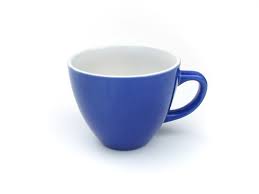记忆方法
将“cup”与“cupcake”或“cupful”联系记忆。想象一个装满“cupcake”的杯子,或者一个杯子装满了东西(cupful),这样就能通过视觉形象帮助记住单词“cup”,它指的是一种小容器,通常用于装液体或小物品。
以上内容由AI生成, 仅供参考和借鉴
中文词源
cup 杯子
来自PIE*keup,鼓起,膨胀,词源同cooper.
英语词源
- cup
-
cup: [OE] Cup is a member of a large Indo- European family of words denoting broadly ‘round container’ that go back ultimately to the bases *kaup- (source of English head) and *keup-. This produced Greek kúpellon ‘drinking vessel’, English hive, and Latin cūpa ‘barrel’, source of English coop [13] (via Middle Dutch kūpe) and cooper ‘barrel-maker’ [14] (from a derivative of Middle Dutch kūpe). A postclassical by-form of cūpa was cuppa, from which came German kopf ‘head’ and English cup.
=> coop, cupola - cup (n.)
- Old English cuppe, from Late Latin cuppa "cup" (source of Italian coppa, Spanish copa, Old French coupe "cup"), from Latin cupa "tub, cask, tun, barrel," from PIE *keup- "a hollow" (cognates: Sanskrit kupah "hollow, pit, cave," Greek kype "a kind of ship," Old Church Slavonic kupu, Lithuanian kaupas).
The Late Latin word was borrowed throughout Germanic: Old Frisian kopp "cup, head," Middle Low German kopp "cup," Middle Dutch coppe, Dutch kopje "cup, head." German cognate Kopf now means exclusively "head" (compare French tête, from Latin testa "potsherd"). Meaning "part of a bra that holds a breast" is from 1938. [One's] cup of tea "what interests one" (1932), earlier used of persons (1908), the sense being "what is invigorating." - cup (v.)
- late 14c., "to draw blood by cupping," from cup (n.). Meaning "to form a cup" is from 1830. Related: Cupped; cupping.
权威例句
- 1. My wife was tucked up in bed with her cup of cocoa.
- 我老婆端着一杯热可可窝在床上。
- 2. Isabelle placed a wine cup on the table within his reach.
- 伊莎贝尔把酒杯放在桌上他伸手可及的地方。
- 3. His next job is to get us to the World Cup finals.
- 他接下来的任务是带领我们闯入世界杯决赛圈。
- 4. We are selling the full range of World Cup merchandising.
- 我们出售世界杯的所有纪念商品。
- 5. I drank a cup of tea that tasted of diesel.
- 我喝了杯有股柴油味的茶。

